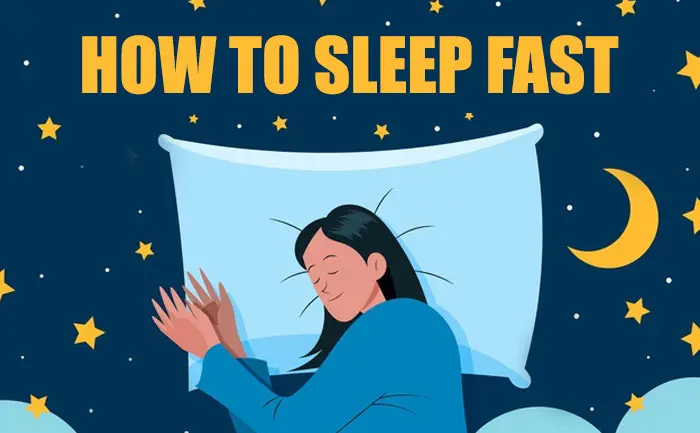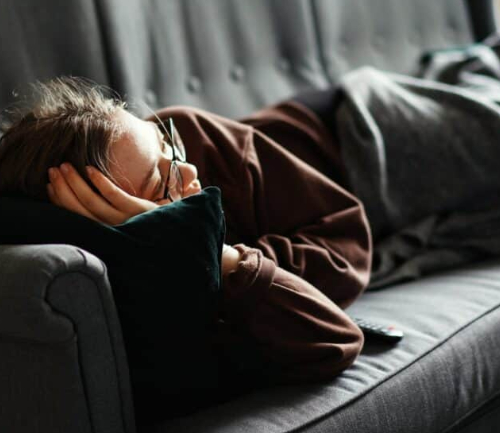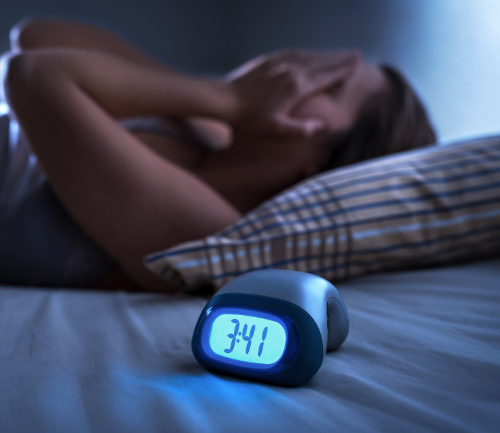- Sponsored -
How to sleep fast: 5 tips and tricks that will surely help you
Are you finding it difficult to sleep at night? Here are some tips and tricks that will help you fall asleep fast.

Getting enough sleep is essential for helping a person maintain optimal health and well-being. A good night’s sleep makes you feel energized and alert the next day. Being engaged and active not only feels great but increases your chances for another good night’s sleep. When your body gets the sleep it needs, your immune cells and proteins get the rest they need to fight off whatever comes to their way-like colds or the flu. Sleep is a time to relax, but it’s also a time during which the body is hard at work repairing damage caused by stress, ultraviolet rays, and other harmful exposure.
- Sponsored -
Many people who struggle with sleep lie in bed wondering how to fall asleep. Your mind races with a rising sense of panic about the difficult day ahead if you don’t fall back to sleep. For their mental and physical health, adults need between seven and nine hours of sleep, and it’s important that they get this sleeping night after night. Poor sleep can have negative effects on many parts of your body and brain, including learning, memory, mood, emotions, and various biological functions.
What is insomnia?
Insomnia is a common sleep disorder that can make it hard to fall asleep, hard to stay asleep or cause you to wake up too early and not be able to get back to sleep. You may still feel tired when you wake up.
There are two types of insomnia: primary and secondary:
- Primary insomnia: This means your sleep problems aren’t linked to any other health condition or problem.
- Secondary insomnia: This means you have trouble sleeping because of a health condition (like asthma, depression, arthritis, cancer, or heartburn); pain; medication; or substance use.
Here are some tips and tricks that will help you fall asleep fast:
1. Avoid napping during the day:
Napping can also have negative effects, such as:
- Sleep inertia: You might feel groggy and disoriented after waking up from a nap.
- Nighttime sleep problems: Short naps generally don’t affect nighttime sleep quality for most people. But if you experience insomnia or poor sleep quality at night, napping might worsen these problems. Long or frequent naps might interfere with nighttime sleep.
Music consistently improves subjective sleep quality, whereas results for objective sleep parameters diverge. Most people listen to music throughout their day and often near bedtime to wind down. Music can be a great part of healthy sleep hygiene.
Here are a few tips to keep in mind while incorporating music:
- Make it a habit.
- Avoid songs that cause strong emotional reactions.
- Find enjoyable songs.
- Be careful with headphones.
The blue light from the screen suppresses melatonin. Blue light can also reduce the amount of time you spend in slow-wave and rapid-eye-movement (REM) sleep, two stages of the sleep cycle that are vital for cognitive functioning. The blue light from your phone is an artificial color that mimics daylight. So, if you’re really struggling with limiting screen time before bed, try putting your phone in a different room and investing in a clock radio for your bedside table.
Essential oils have a wide range of uses. A variety of essential oils have been used as medical treatments since ancient times. Essential oils can also be a powerful way to help you relax and sleep better and they can have many different benefits, such as weakening certain viruses and strengthening the immune system to soothing feelings of anxiety.
Here are seven essential oils to incorporate into your evening routine:
- Lavender
- Chamomile
- Cedarwood
- Tea Tree
- Sandalwood
- Neroli
Getting a good night’s sleep may seem like an impossible goal when you’re wide awake at 3 a.m., but you have much more control over the quality of your sleep than you probably realize. One of the best ways to promote consistent sleep is having a healthy sleep routine. By following a standard schedule and healthy sleep habits, the mind and body become accustomed to a routine that includes plenty of high-quality sleep. Unhealthy daytime habits and lifestyle choices can leave you tossing and turning at night and adversely affect your mood, brain and heart health, immune system, creativity, vitality, and weight.
Stay tuned to The Live Mirror for more updates.
ALSO READ: How To Lose Thigh Gap Fast: Tips And Tricks To Get Slim Legs
- Sponsored -





